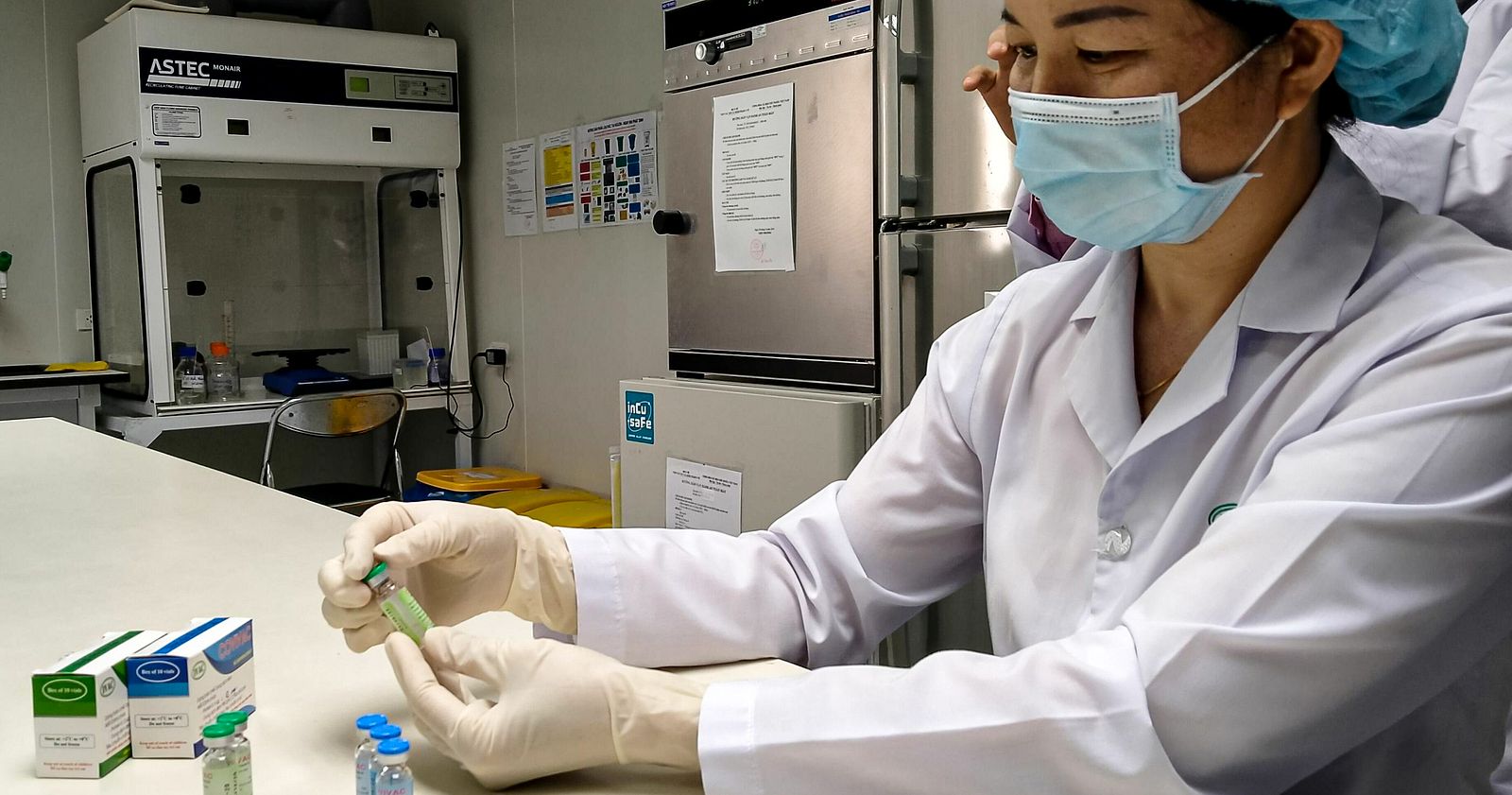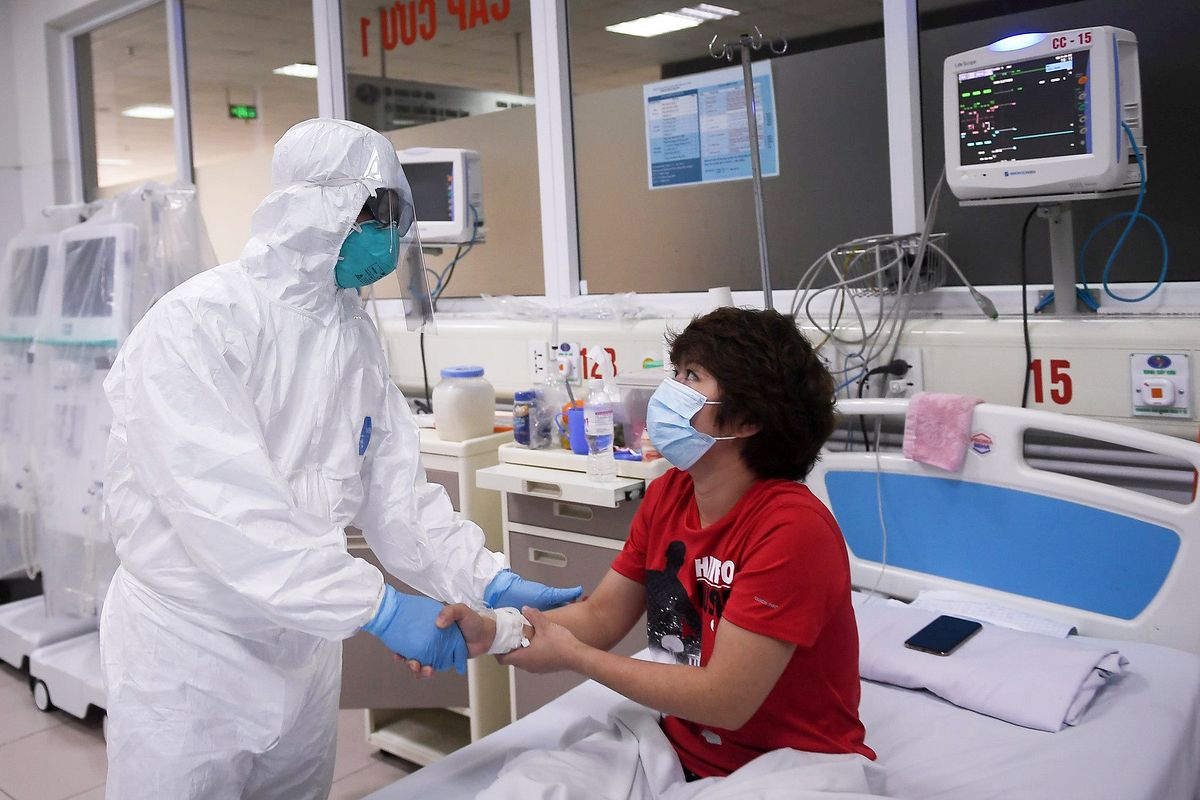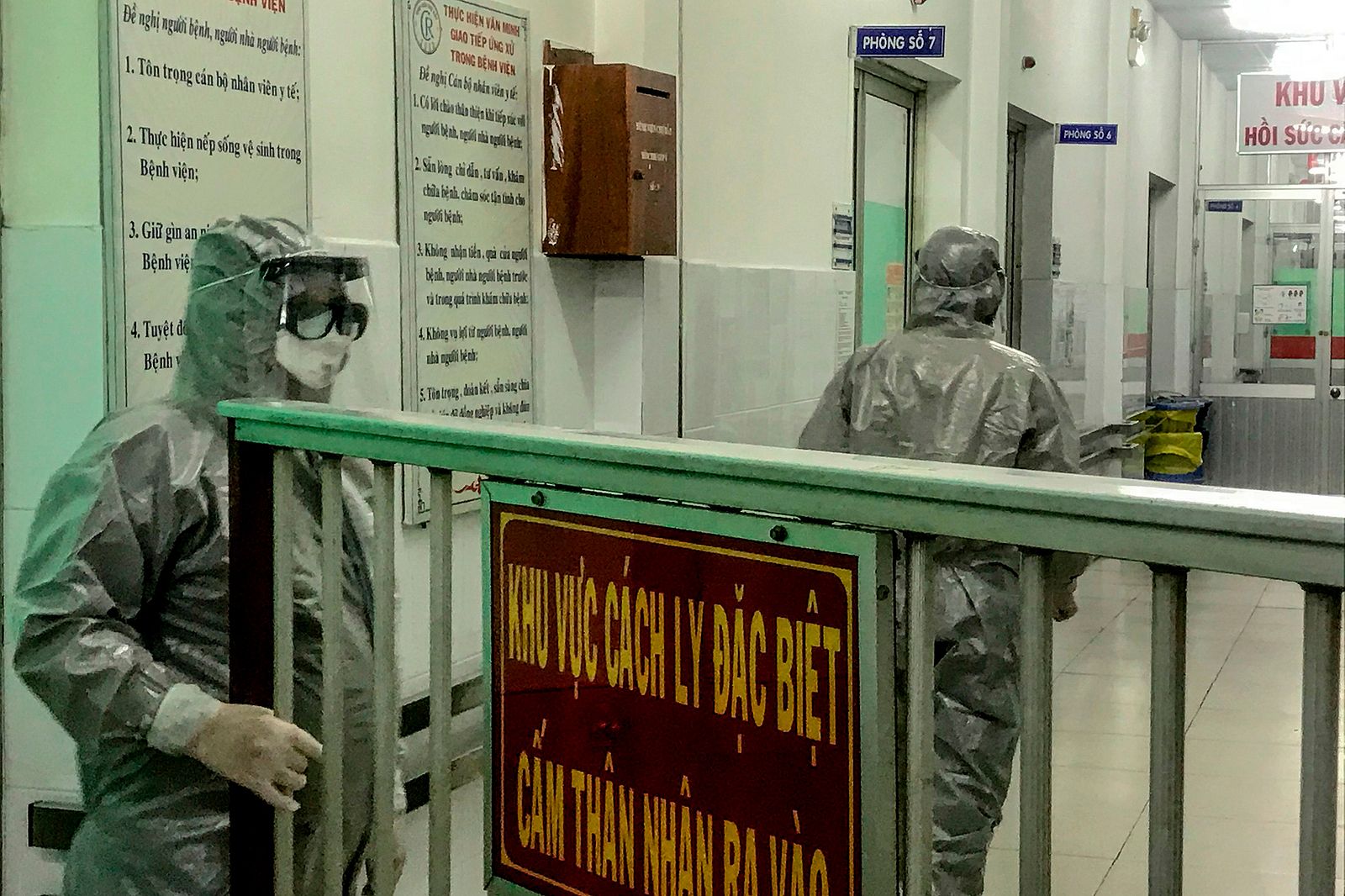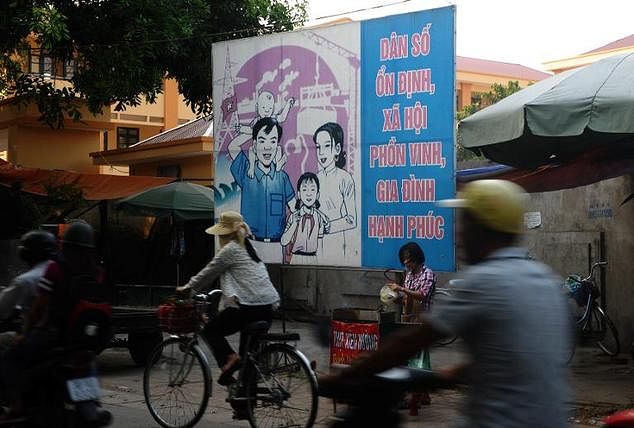Alcohol poisoning is a common problem in Vietnam, but this is among the handful of times when beer acted as an antidote, instead of the poison.
According to Tuoi Tre, on the morning of January 10, the Quang Tri General Hospital confirmed that patient Nguyen Van Nhat was discharged and given a clean bill of health. Nhat was admitted a few weeks ago in a coma with near-fatal alcohol poisoning. However, the doctors at the facility were able to save him by using a rather unconventional treatment: pumping him full of beer — 15 cans, to be exact.
The newspaper explained that on December 23, Nhat and a few neighbors living in Trieu Do Commune of Quang Tri Province held a nhậu party with rice wine bought from a local mom-and-pop store. Two days later, three of the participants, including Nhat, fell gravely ill and had to be hospitalized; one eventually passed away.
According to Dr. Le Van Lam, head of the Quang Tri General Hospital’s ICU and Toxicology Department, Nhat suffered from serious methanol poisoning. The doctors decided to administer three cans of beer to his digestive system, followed by one can per hour for the next few hours. The ethanol therapy, coupled with hemodialysis, eventually stabilized him, as the methanol was filtered out of his body.
Though curing alcohol poisoning with beer may sound counter-intuitive, Dr. Lam shared that it worked because the poisoning was caused by methanol, instead of ethanol, the common ingredient in alcoholic drinks. Our body is capable of digesting a considerable amount of ethanol without any immediate danger, but when it attempts to break down methanol, a highly lethal by-product called formic acid is released. The toxin can cause convulsions, respiratory arrest, permanent blindness, a coma and eventually death.

Nhat while being treated at the Quang Tri General Hospital. Photo by V.Ngoc via Tuoi Tre.
However, as the human body preferentially breaks down ethanol before methanol, the beer that the Quang Tri doctors fed the patient acted as buffer while hemodialysis cleaned his blood of excess methanol.
Head of the Quang Tri Department of Food Safety Ho Sy Bien shared an analysis of the rice wine sample that the group ingested on January 9. The report shows that the liquor’s methanol concentration was 1,119 times higher than the allowed level. The danger of methanol poisoning is that the process to break it down is slow, so victims will only feel its detrimental effects well after they have consumed it.
According to World Health Organization, fruit juice and fermented fruit naturally have trace amounts of methanol. Beer and spirits can also contain 6-27 milligrams and 10-220 milligrams of methanol per liter, respectively — both safe levels for consumption. Vietnam, however, has scores of casual brewers whose incorrectly managed home distilleries might lead to abnormal concentrations of methanol.
Moreover, methanol is an industrial alcohol sold at a much cheaper price than ethanol. Hence, unethical merchants may deliberately add it to fortify bootleg spirits and maximize profits while endangering buyers.
A report by the Vietnamese government shows that in 2017, the country had 24 food-related deaths, 11 of which were caused by methanol poisoning. The condition tends to disproportionately affect poor people in rural areas as there are more informal rice wine producers in the countryside than in the cities. Moreover, these wines are cheap and thus are appealing to casual drinkers.
[Top photo via Creative Commons]














